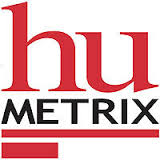 At this year’s HIMSS conference, interoperability was again one of the hottest topics of discussion. Interoperability was even a featured showcase at the HIMSS Interoperability Showcase. Yet the lack of interoperability in HealthIT remains. "HealthIT is not unique in its interoperability woes and other industries, including the automotive industry, are still struggling with associated safety issues."
At this year’s HIMSS conference, interoperability was again one of the hottest topics of discussion. Interoperability was even a featured showcase at the HIMSS Interoperability Showcase. Yet the lack of interoperability in HealthIT remains. "HealthIT is not unique in its interoperability woes and other industries, including the automotive industry, are still struggling with associated safety issues."
personal health information (PHI)
See the following -
81% Of Healthcare Organizations Have Been Compromised By Cyber-Attacks In Past 2 Years: KPMG Survey
 Eighty-one percent of health care executives say that their organizations have been compromised by at least one malware, botnet, or other cyber-attack during the past two years, and only half feel that they are adequately prepared in preventing attacks, according to the 2015 KPMG Healthcare Cybersecurity Survey.
Eighty-one percent of health care executives say that their organizations have been compromised by at least one malware, botnet, or other cyber-attack during the past two years, and only half feel that they are adequately prepared in preventing attacks, according to the 2015 KPMG Healthcare Cybersecurity Survey.
- Login to post comments
Australia's Digital Health Strategy Gets the Nod Without Data Interoperability Controls
My Health Record, the Australian government's e-health record system, has been officially given the green light from the Council of Australian Governments Health Council to automatically sign citizens up to the service, allowing them to opt-out if they choose. By 2018, all Australians will have a My Health Record and by 2022, all healthcare providers will be able to contribute to and use health information in My Health Record on behalf of their patients. They will also be able to communicate with other healthcare providers on the clinical status of joint patients via the digital platform...
- Login to post comments
Car Crashes, Auto Bumpers, and HealthIT Interoperability
- Login to post comments
Cyberattacks Predicted to Triple in 2021, Black Book State of the Healthcare Industry Cybersecurity Industry Report
 Seventy-three percent of health system, hospital and physician organizations report their infrastructures are unprepared to respond. The survey results estimated 1500 healthcare providers are vulnerable to data breaches of 500 or more records, representing a three hundred percent increase over this year. Black Book Market Research LLC surveyed 2,464 security professionals from 705 provider organizations to identify gaps, vulnerabilities and deficiencies that persist in keeping hospitals and physicians proverbial sitting ducks for data breaches and cyber-attacks.
Seventy-three percent of health system, hospital and physician organizations report their infrastructures are unprepared to respond. The survey results estimated 1500 healthcare providers are vulnerable to data breaches of 500 or more records, representing a three hundred percent increase over this year. Black Book Market Research LLC surveyed 2,464 security professionals from 705 provider organizations to identify gaps, vulnerabilities and deficiencies that persist in keeping hospitals and physicians proverbial sitting ducks for data breaches and cyber-attacks.
- Login to post comments
DirectTrust Reports Strong Growth in Direct Transactions, Number of Direct Exchange Addresses and Users
 DirectTrust today announced continued record growth in the number of health care organizations using Direct exchange services during 2015, as well as an upsurge in the number of Direct addresses and transactions nationwide. DirectTrust is a non-profit health care industry alliance created by and for participants in the Direct exchange network used for secure, interoperable exchange of personal health information (PHI) between provider organizations, and between provider and patients, for the purpose of improved coordination of care...
DirectTrust today announced continued record growth in the number of health care organizations using Direct exchange services during 2015, as well as an upsurge in the number of Direct addresses and transactions nationwide. DirectTrust is a non-profit health care industry alliance created by and for participants in the Direct exchange network used for secure, interoperable exchange of personal health information (PHI) between provider organizations, and between provider and patients, for the purpose of improved coordination of care...
- Login to post comments
Eaten Alive: A Patients’ Perspective on De-Identification of Personal Health Information
 In 2018, the majority of people do not know that their PHI, like their EHR data, prescription data, insurance claims, and genetic data via direct-to-consumer (DTC) tests, are de-identified and sold for research and commercial purposes at massive profits. Medical health data trading is a multi-billion dollar industry. The process of de-identification supplies data that may be aggregated for a variety of analyses, such as basic scientific discoveries, policy & legal reviews, process refinement, pharmaceutical marketing, and other efforts. Data de-identification isn’t new but it is rampant. I’m gravely concerned about the free-for-all that is de-identification. You should be too.
In 2018, the majority of people do not know that their PHI, like their EHR data, prescription data, insurance claims, and genetic data via direct-to-consumer (DTC) tests, are de-identified and sold for research and commercial purposes at massive profits. Medical health data trading is a multi-billion dollar industry. The process of de-identification supplies data that may be aggregated for a variety of analyses, such as basic scientific discoveries, policy & legal reviews, process refinement, pharmaceutical marketing, and other efforts. Data de-identification isn’t new but it is rampant. I’m gravely concerned about the free-for-all that is de-identification. You should be too.
- Login to post comments
Getting a slice of PHI
There is a communicative aspect to medicine that many tend to gloss over. The very heart of medicine is having one person sit down and talk about themselves to another. Read More »
- Login to post comments
Global Study Finds Majority Believe Traditional Hospitals Will Be Obsolete In The Near Future
A global study was released this morning by the Intel Corporation indicating that around the world people’s health care wants and needs are principally focused on technology and personalization. The “Intel Health Innovation Barometer” found a consistent theme: customized care.
- Login to post comments
HHS Makes Changes to 'Wall of Shame' Breach Reporting Site
The Department of Health and Human Services has made changes to its website, widely referred to as the "wall of shame," that lists reports of major health data breaches affecting 500 or more individuals. The changes come after complaints from some members of Congress and others that the website unfairly exposes breached organizations to endless public scrutiny because incidents are indefinitely listed on the site...
- Login to post comments
HIMSS13: A Fork in the Road - How Patients & Payment Are Forcing 'Open' Health IT
This year feels like a fork in the road at HIMSS13, with disruptive forces of patients, digital health, mobility and open standards driving innovation and renewed energy at the annual conference...Without transparency (in health IT and health finance) and data liquidity, bending the cost curve will continue to elude the U.S. health system. At the recently concluded annual Healthcare Information and Management Systems Society conference in New Orleans, 34,696 got to experience a yin and yang vibe that embodies the disruption that the health care IT industry is undergoing. That is, the full-on face-off between developers of health IT that have been long-closed to data liquidity and those vendors innovating on open standards and cloud-based platforms. Read More »
How Do Cloud-Based EHRs Address Common Implementation Woes?
After spending thousands of dollars on an EHR system, computers, IT infrastructure, installation, and staff training, most providers hope that they never have to go through the EHR implementation process again. [...] Read More »
- Login to post comments
Humetrix Calls for Burgess Interoperability Bill to Add Provider/Patient EHR Exchange
 As a developer of several mobile personal health record applications, Humetrix supports Congressman Michael C. Burgess, MD, aim to accelerate electronic health record interoperability as expressed in his draft Health IT bill. We emphasize the need to facilitate health information exchange between providers and their patients, so that patients or their caregivers connect and exchange their personal health information with different providers as a key complement to efforts to improve health information exchange between provider systems.
As a developer of several mobile personal health record applications, Humetrix supports Congressman Michael C. Burgess, MD, aim to accelerate electronic health record interoperability as expressed in his draft Health IT bill. We emphasize the need to facilitate health information exchange between providers and their patients, so that patients or their caregivers connect and exchange their personal health information with different providers as a key complement to efforts to improve health information exchange between provider systems.
- Login to post comments
Humetrix Presents Disruptive Personal Health App Solutions Before US Congress
 As a former practicing physician, data scientist and public health officer, I became a healthcare IT entrepreneur focusing on mobile technology because I believed that the best way to treat patients, improve health outcomes, and reduce waste is to put patients’ critical health information into their own hands, so they can share that information with their physicians when needed. With 68 percent of Americans using a smart phone daily1, and new HIPAA rules giving each of us a legal right to electronically access our health records, consumer facing mobile health applications can be a cure to the information blocking which is still plaguing our health care system. In a healthcare environment in which one-third of expenditures are wasted3 on redundant care, and medical errors representing the third leading cause of death in the U.S. today4, having immediate access to a patient’s health history can literally save lives and also significantly reduce healthcare costs.
As a former practicing physician, data scientist and public health officer, I became a healthcare IT entrepreneur focusing on mobile technology because I believed that the best way to treat patients, improve health outcomes, and reduce waste is to put patients’ critical health information into their own hands, so they can share that information with their physicians when needed. With 68 percent of Americans using a smart phone daily1, and new HIPAA rules giving each of us a legal right to electronically access our health records, consumer facing mobile health applications can be a cure to the information blocking which is still plaguing our health care system. In a healthcare environment in which one-third of expenditures are wasted3 on redundant care, and medical errors representing the third leading cause of death in the U.S. today4, having immediate access to a patient’s health history can literally save lives and also significantly reduce healthcare costs.
- Login to post comments
Humetrix to Showcase Medicare Approved Blue Button 2.0 Mobile Platform at HIMSS19
 At HIMSS 19 February 11-15 in Orlando, Florida, Humetrix will demo its iBlueButton 8.0 mobile health platform approved by the Centers for Medicare and Medicaid Services (CMS) to help millions of Americans covered by Medicare, Veterans, and military personnel in TRICARE receive safer and more cost-effective healthcare. A year after announcing the Medicare Blue Button 2.0 and MyHealthEData initiative at the HIMSS 18 conference, CMS Administrator, Seema Verma continues to emphasize the importance of "giving patients the necessary information they need to make the best decisions about their health care". Humetrix...has embraced this initiative from the start recognizing first and foremost that because Medicare beneficiaries are most at risk for medical errors and redundant tests across multiple providers they need to have access and use of their medical history wherever they receive care.
At HIMSS 19 February 11-15 in Orlando, Florida, Humetrix will demo its iBlueButton 8.0 mobile health platform approved by the Centers for Medicare and Medicaid Services (CMS) to help millions of Americans covered by Medicare, Veterans, and military personnel in TRICARE receive safer and more cost-effective healthcare. A year after announcing the Medicare Blue Button 2.0 and MyHealthEData initiative at the HIMSS 18 conference, CMS Administrator, Seema Verma continues to emphasize the importance of "giving patients the necessary information they need to make the best decisions about their health care". Humetrix...has embraced this initiative from the start recognizing first and foremost that because Medicare beneficiaries are most at risk for medical errors and redundant tests across multiple providers they need to have access and use of their medical history wherever they receive care.
- Login to post comments
Keeping Patient Data Safe with Open Source Tools
 Healthcare is experiencing a revolution. In a tightly regulated and ancient industry, the use of free and open source software makes it uniquely positioned to see a great deal of progress. I work at a scrappy healthcare startup where cost savings are a top priority. Our primary challenge is how to safely and efficiently manage personally identifying information (PII), like names, addresses, insurance information, etc., and personal health information (PHI), like the reason for a recent clinical visit, under the regulations of the Health Insurance Portability and Accountability Act of 1996, HIPAA, which became mandatory in the United States in 2003.
Healthcare is experiencing a revolution. In a tightly regulated and ancient industry, the use of free and open source software makes it uniquely positioned to see a great deal of progress. I work at a scrappy healthcare startup where cost savings are a top priority. Our primary challenge is how to safely and efficiently manage personally identifying information (PII), like names, addresses, insurance information, etc., and personal health information (PHI), like the reason for a recent clinical visit, under the regulations of the Health Insurance Portability and Accountability Act of 1996, HIPAA, which became mandatory in the United States in 2003.
- Login to post comments